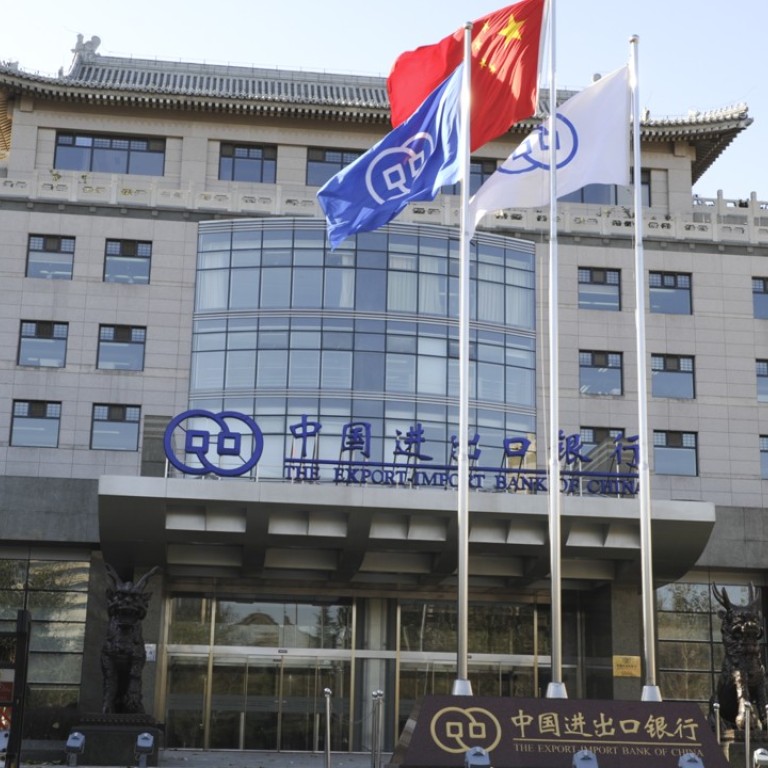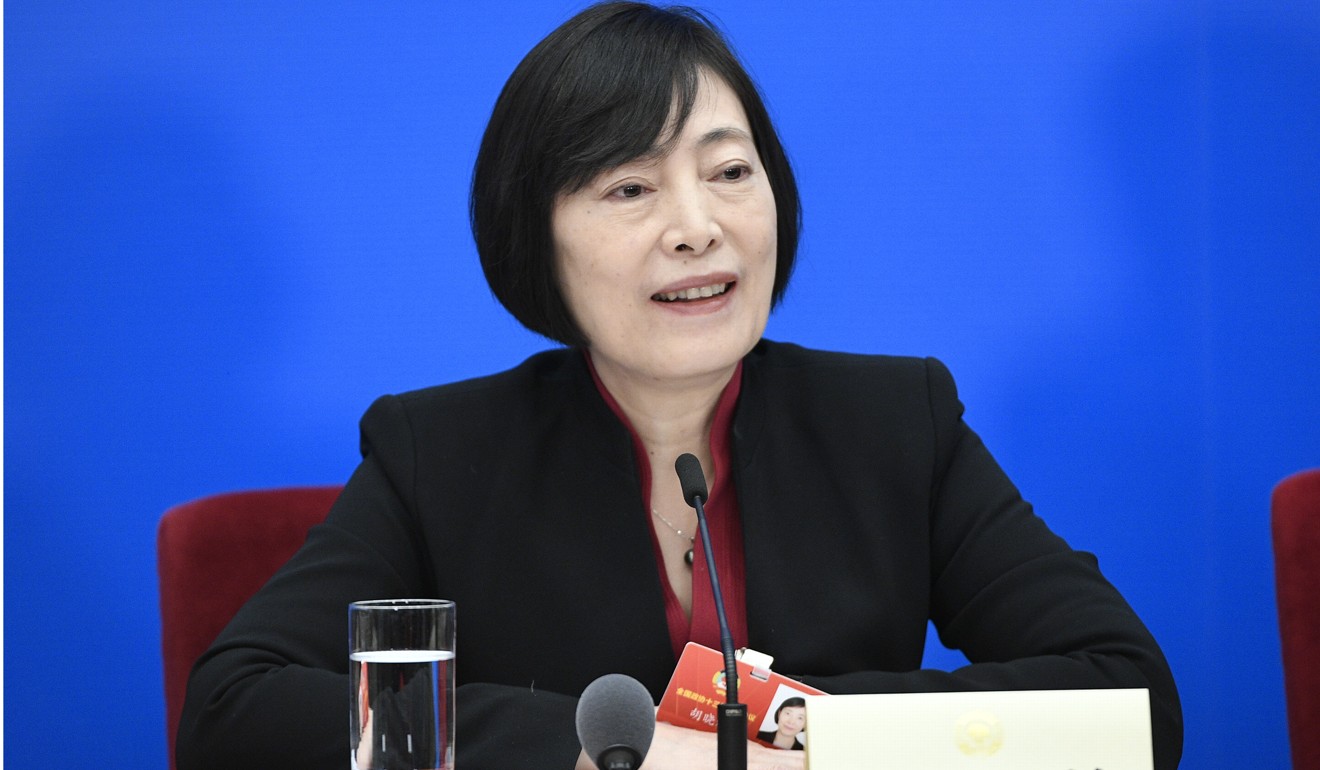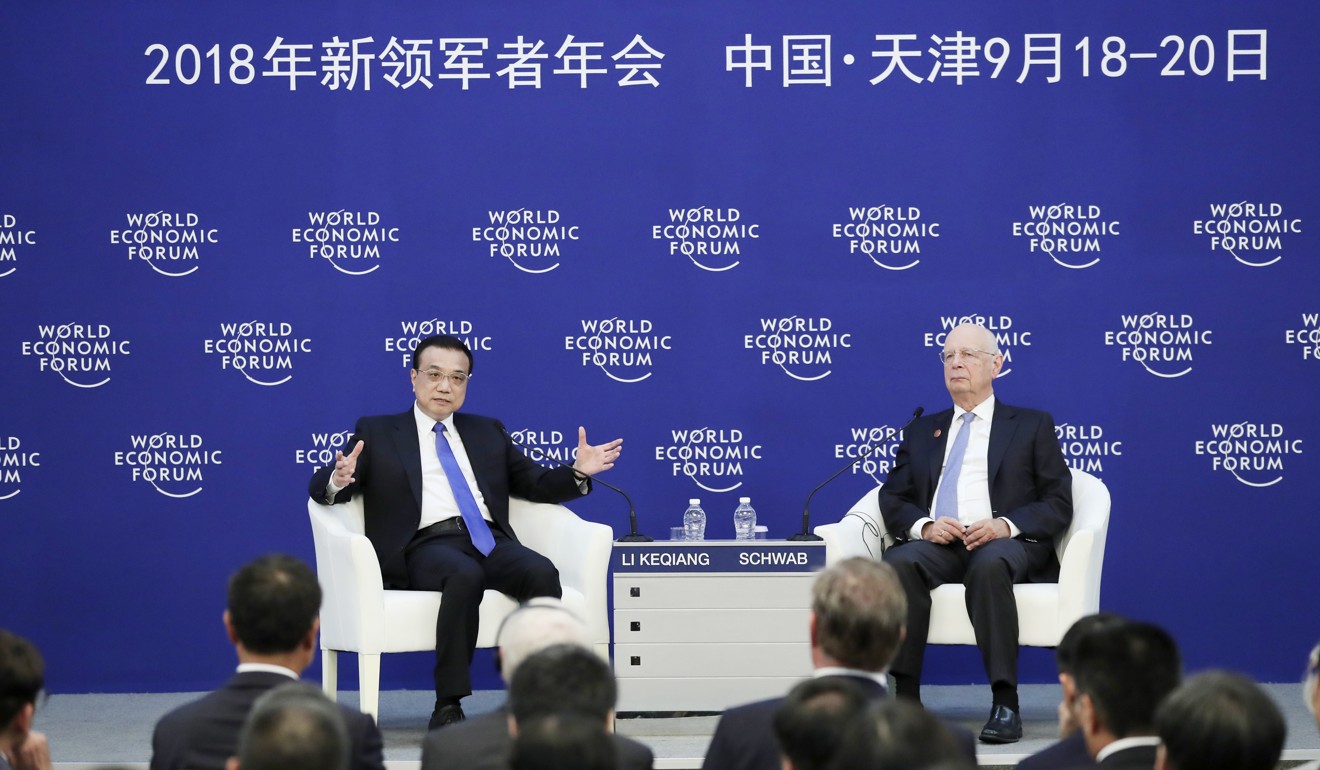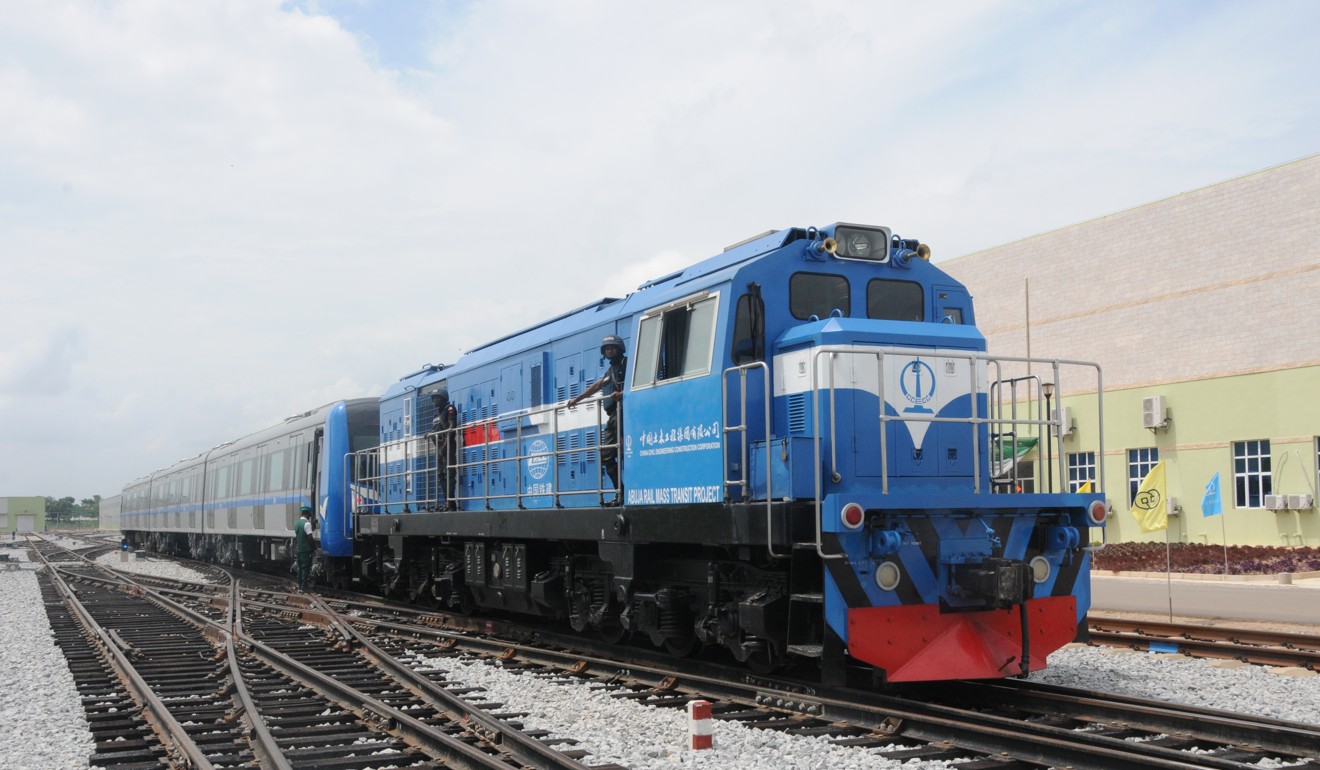
China’s Exim Bank to boost lending in an effort to support exporters hit hard by trade war
The head of the state-owned policy bank says it will team up with other government agencies to increase support to exporters affected by the trade war
The Export-Import Bank of China, the country’s leading provider of export financing, will team up with other government agencies to help companies who have been hit hard by the US trade tariffs, its chairwoman said on Thursday.
“Some small trading firms have encountered huge difficulties,” Hu Xiaolian told the South China Morning Post on the sidelines of the World Economic Forum in Tianjin. “Our task, as a state-owned policy bank, is to ensure credit availability and solve high financing cost.”
Hu did not reveal the size of the new lending programme or whether there would be any special initiative to help small export businesses, many of which are fighting for survival as the trade war cuts export orders and rising costs erode profitability.

Following Tuesday’s meeting of the State Council, China’s cabinet, Premier Li Keqiang announced a series of measures to support exporters, including cutting customs clearance red tape, reducing the cost of customs procedures, expanding export credit insurance and increasing export tax rebates. The announcement came hours after the US imposed tariffs on an additional US$200 billion of Chinese goods, on top of the $50 billion Chinese imports already sanctioned.
In his address to business leaders on Monday, the premier promised to give the same treatment to private and foreign businesses as state-owned players, and improve access to financing for small firms.
The country’s US-bound exports rose 13.2 per cent in July from a year earlier, accelerating from the 11.2 per cent growth rate in June, but many analysts attribute the gain to firms rushing to complete export orders before the imposition of additional tariffs. Analysts expect downward pressures on exports to begin appearing in the fourth quarter.
Niger to repay US$1 billion China Exim Bank loan from sales of oil produced by Chinese firm
The Beijing-based China Exim Bank’s lending to trading firms rose 12 per cent in the first half of this year compared to the same period a year ago, and now account for 56 per cent of its credit resources, according to data on its website.
The agency data did not break down lending by business size, but small firms are widely believed to have more difficulties than larger state-owned rivals in gaining access to this official financing.
Hu suggested the agency will use new data analysis to better target trade financing to the neediest firms, while keeping a close eye on creditworthiness.
“The important thing [for the Exim Bank] is to innovate our service … We will use technical tools, such as big data, to evaluate firms and screen our clients. These online tools will expand our coverage of service,” she said.

The agency will also collect and aggregate data from other government agencies, such as the tax bureau, the customs administration, financial regulators and credit information providers, to better map out risks, she said.
To fulfil the government’s policy directives, the policy bank has the advantages of only needing to cover its costs rather making a profit.
Hu did not reveal how much additional financing support the China Exim Bank would provide this year in the face of rising trade war difficulties, instead promising to “allocate more credit [to exporters] if there’s a large demand.”
Is China’s belt and road infrastructure development plan about to run out of money?
The former vice central bank governor also suggested greater tolerance for credit risks from small firms, echoing a similar plan rolled out by the People’s Bank of China on Tuesday.
Profit-driven commercial banks are often reluctant to lend to small firms because of high costs and higher risks, and one of the tools already employed by the central bank is reducing the amount of money banks are required to hold at the central bank if they meet minimum lending levels to small businesses and agricultural firms.

The China Exim Bank is also one of the largest financing providers to the Belt and Road Initiative (BRI), a vast series of major infrastructure projects meant to extend the country’s economic influence across Asia, Africa and Europe.
Its lending to BRI projects has risen 37 per cent in the first six months of this year.
However, risks have arisen because of rising difficulties for emerging market economies.
“Serving traders and Belt and Road Initiative [projects] is our most important work, but it must follow market rules and business routines,” Hu said, without elaborating.

